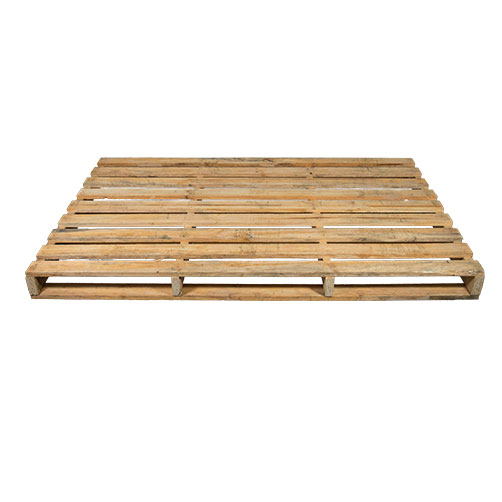In recent years, the emphasis on sustainable practices has transformed the approach businesses approach transport and storage needs. Among the numerous solutions available, wooden pallets have risen as a featured choice, perfectly merging practicality with environmental consciousness. With their original origins and recyclability, wooden pallets are not just instruments for moving goods; they embody a pledge to eco-friendly practices that connect with companies and consumers alike.
Wooden pallets are crafted for optimal durability and efficiency, making them an integral component in logistics and warehousing. Their potential to support significant weight while providing ease of handling makes them ideal for transporting a wide range of products. As more companies aim to minimize their ecological footprint, the dependence on wooden pallets stands for a step towards environmentally friendly supply chains, emphasizing the versatility and sustainability that these wooden transportation solutions offer to the table.
Benefits of Wooden Pallets
Timber platforms offer a range of advantages that make them an ideal choice for transporting goods. One of the most notable advantages is their strength. Made from solid wood, these pallets are strong enough to support heavy loads without sacrificing their structural integrity. This strength ensures that products are safely held during shipping, reducing the risk of damage and loss.
In addition to strength, wooden pallets are highly versatile. They come in various sizes and designs, making them suitable for shipping a diverse range of products. This adaptability allows businesses to optimize their storage solutions and streamline their logistics operations. With the ability to pile and arrange goods efficiently, wooden pallets can help maximize space in warehouses and distribution centers.
Additionally, wooden pallets are eco-friendly, contributing to sustainability in the shipping industry. Being made from sustainable resources, they can be recycled and reused multiple times before their final disposal. When the pallets arrive at the end of their life cycle, they can be repurposed into mulch, compost, or potentially new wooden products. This circular approach minimizes waste and reduces the ecological footprint associated with conventional packaging materials.
Eco-friendly Sourcing and Manufacturing
The sustainability of wooden pallets starts with their sourcing. Many manufacturers are committed to using wood from responsibly managed forests, ensuring that the trees are cut down in a way that doesn't harm the ecosystem. Certified sources, such as those that comply to the Forest Stewardship Council standards, ensure that the wood used for pallets is grown sustainably, allowing local ecosystems to thrive while bolstering local businesses. This commitment to ethical sourcing is crucial for reducing the overall ecological impact of pallet manufacturing.
In addition to sustainable sourcing, the manufacturing processes for wooden pallets have evolved to minimize waste and energy consumption. Current manufacturing techniques utilize advanced machinery that efficiently converts raw materials into high-quality pallets with little scraps. Many companies focus on recycling wood from old pallets, repurposing it into new pallets or alternative products. This circular approach not only reduces the demand for new timber but also minimizes landfill waste, making the production cycle more eco-friendly.
Finally, the durability and longevity of wooden pallets add to their sustainability. Quality wooden pallets can be recycled multiple times across different shipping and storage cycles, substantially extending their lifespan. When they finally reach the final of their life, they can be recycled into organic matter or alternative products. By spending in high-quality wooden pallets, businesses can improve their logistics while also supporting a more eco-friendly supply chain.
Ultimate Options for Wooden Pallets
As wooden pallets reach the termination of their functional life, several eco-friendly solutions can be utilized to address their waste. pallets in tulsa of the most efficient methods is recycling. Many companies specialize in deconstructing wooden pallets to reclaim the raw materials, which can then be transformed into new pallets or used in other wood products. This process not only lessens waste but also helps to protect resources and diminish the requirement for new timber.
A further sustainable option is repurposing, where old wooden pallets are turned into new products. Innovative individuals and businesses commonly make use of discarded pallets to create furniture, decorative items, and garden structures. This not only prolongs the life of the wood but also fosters a culture of reusing materials, lessening the overall impact on the environment. By repurposing, wooden pallets can find new life in different forms, making them a valuable resource rather than waste.
Ultimately, composting is an excellent end-of-life solution for wooden pallets that are no longer fit for reuse or recycling. If the wood is organic and lacking harmful chemicals, it can be added to compost piles, where it will decompose into organic matter. This improves the soil and contributes to sustainable agricultural practices. By opting for composting as an end-of-life solution, the environmental footprint of wooden pallets can be effectively lessened, harmonizing with eco-friendly transport initiatives.

